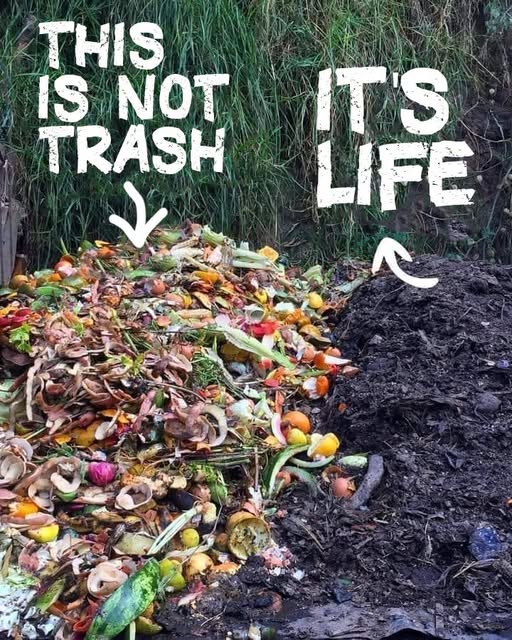Waste, Recycling & Compost
Recycling
Recycling can be confusing. All the types of materials we use, and the symbols and numbers on plastics can make it all maddening. Follow these guidelines to increase your recycling success.
- WM local Recycle-Right Guide
- KTMB's Recycling Guide - Our go-to guide when we have questions.
Keep it simple
Don't "wish-cycle" by throwing something in the recycling bin if you don't know. Because recycling facilities have limited ability to remove contamination, even small mistakes result in discarded loads. Common contamination includes unwashed glass, plastic, or metal containers, wet or dirty materials, or materials currently not accepted for recycling. Even small contamination can ruin a whole truckload of otherwise-clean recyclables.
Compostable plates, cups & utensils?
Too often, that "compostable" plate, cup or utensil isn't, at least not here in northern Nevada. Recycling them properly requires industrial facilities that we don't have in this region.
Learn how to spot the real thing
Not all disposable cups, plates, and take-out containers are recyclable or compostable—appearance can be deceiving. Even items that are brown or “cardboard-like” may not breakdown and can contaminate compost. To make a real difference, look for BPI-certified compostable products, which meet strict standards for breaking down safely in compost systems. BPI (Biodegradable Products Institute) maintains an easy-to-use database of certified products, from cutlery to produce containers.
See if your favorite restaurant, café, or market is using compostable options—and if not, encourage them to explore the list at products.bpiworld.org. Every switch from single-use plastics to compostable products helps reduce waste and keeps valuable materials out of the landfill.
Can coffee shops refill my reusable cup? Find out here.
 Compost
Compost
Composting at home is one of the easiest ways to reduce food waste, enrich your garden, and keep valuable materials out of the landfill. From fruit peels to coffee grounds, many everyday scraps can be transformed into nutrient-rich compost that feeds plants and improves soil health.
If you’re new to composting, here are some guides to help you get started:
In addition, local organizations across Washoe County offer hands-on classes and workshops to help you get started—covering everything from bin setup to troubleshooting common issues. Check the list below for upcoming classes and turn your kitchen and yard waste into a valuable resource for our community’s future.
Classes are posted at various times throughout the year so check back frequently if you don’t see any future classes posted.
